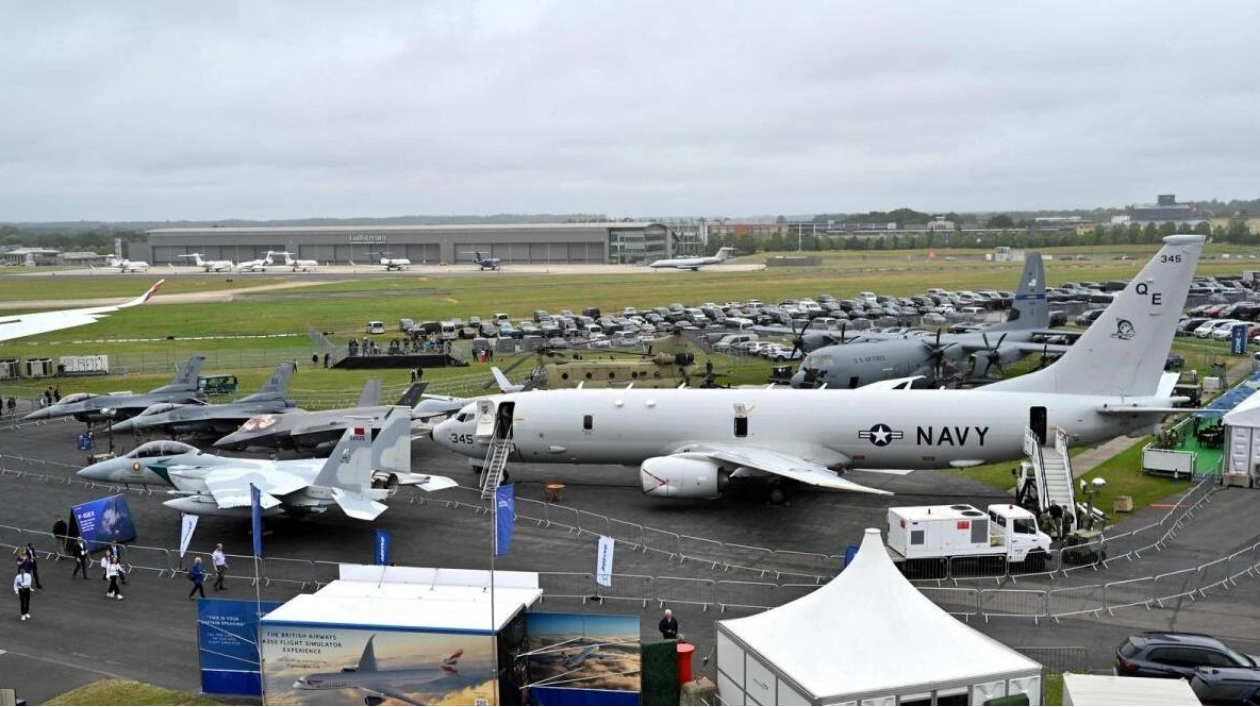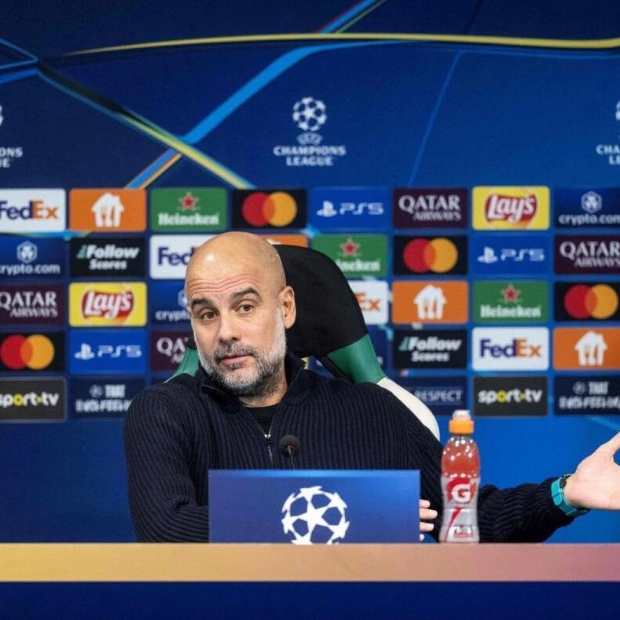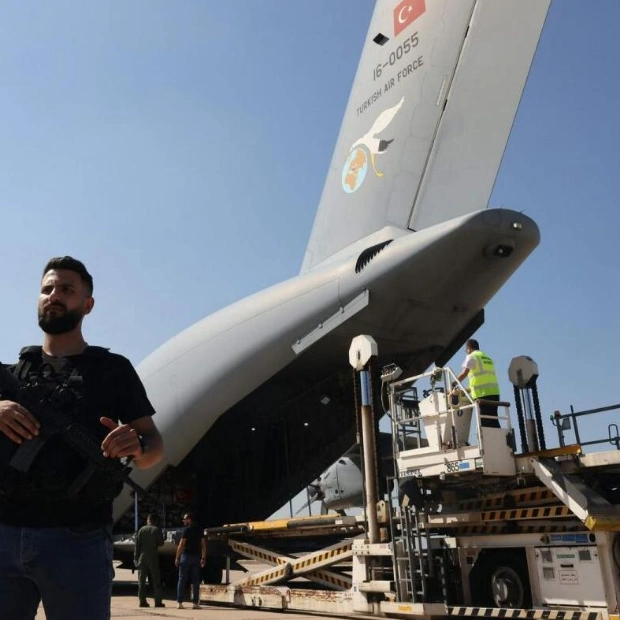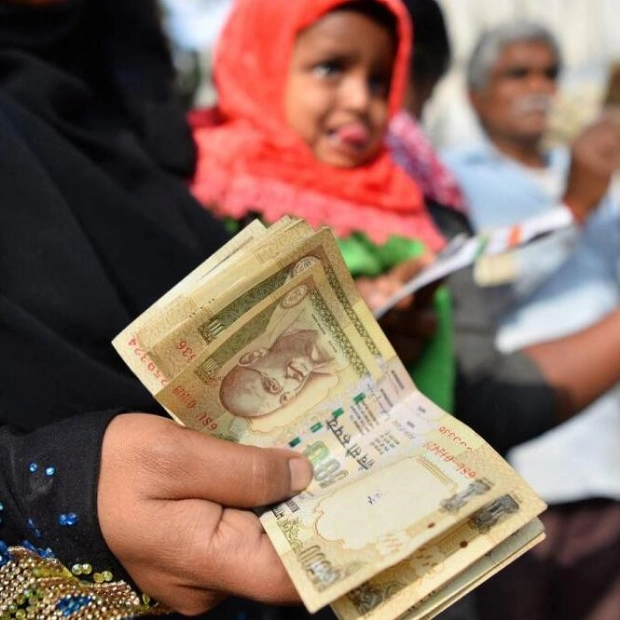A significant drop in Ryanair's quarterly earnings overshadowed the commencement of the Farnborough Airshow on Monday, as aviation executives were already concerned about supply chain issues, delayed aircraft deliveries, and faltering initiatives to reduce emissions.
Boeing secured a substantial order from Korean Air for 20 777X and 20 787 aircraft, valued at $7 billion based on estimated delivery prices from Cirium Ascend, providing a boost to the U.S. manufacturer's long-delayed 777X program. However, many attendees at the July 22-26 event anticipated fewer traditional large-scale deals due to Airbus's struggle to meet production targets and Boeing's cautious approach amid its safety crisis, sparked by a panel detaching from a 737 MAX jet in January.
The aviation industry was severely impacted by the pandemic, which led to a collapse in air travel followed by a rapid rebound, leaving numerous companies to urgently address labor and parts shortages. The situation has been further complicated by a deepening crisis at Boeing, which has had to reduce the production rate of its best-selling 737 MAX aircraft after the panel incident.
Delays in aircraft deliveries have hindered airlines' ability to capitalize on the post-pandemic travel surge and have increased costs, with growing indications that airlines are struggling to pass these costs onto consumers as demand begins to stabilize. Ryanair, Europe's largest budget airline, reported a near halving of quarterly profits on Monday, with fares dropping by 15 percent and management warning of further price pressures ahead.
CEO Michael O'Leary noted some improvement in Boeing deliveries but expressed concern about ongoing delays and future deliveries scheduled for next year. Meanwhile, the CEO of Air India revealed that the airline was forced to cannibalize parts from other aircraft to maintain operations amid industry supply chain disruptions.
The question looming over Farnborough is whether the post-pandemic demand surge has plateaued, according to veteran aviation journalist Mark Pilling, who was set to moderate a CEO panel. Pegasus Airlines CEO Guliz Ozturk observed that customers were returning to prioritizing lower fares.
Ryanair's fare warning heightened concerns about yield pressures, a critical indicator of airline profitability. European airline shares suffered significant declines, with Ryanair falling over 14% and on track for its worst day since June 2016, while competitors easyJet, TUI, and BA-owner IAG also saw substantial drops.
With deal-making expected to be subdued, the airshow's focus is likely to shift to how manufacturers are addressing supply chain bottlenecks. Boeing's new head of commercial aircraft, Stephanie Pope, announced improvements in 737 MAX production and a company-wide transformation in safety and corporate culture. Airbus CEO Guillaume Faury also reported progress in ramping up production of its main passenger jets.
Some deals are expected to materialize, with Virgin Atlantic nearing an additional order for Airbus A330neos and Saudi low-cost carrier Flynas poised to order up to 30 widebody aircraft. Japan Airlines is anticipated to confirm recent tentative orders, and Boeing is seeing leasing interest for its 737 MAX, while Turkish Airlines is in talks to purchase Boeing jets.
The airshow will feature numerous sustainability panels and workshops as aerospace companies and airlines emphasize their commitment to reducing carbon emissions, despite plans for significant expansion in global air travel. On the defense front, attention will be on Ukraine, potential delays to the U.S.'s future F-22 fighter replacement, and a defense review by Britain's new Labour government.
British Prime Minister Keir Starmer highlighted the importance of the Global Combat Air Programme (GCAP) at the show, quelling speculation that the fighter jet project with Japan and Italy might be canceled following the defense review.






